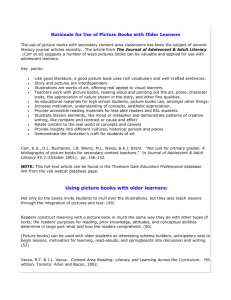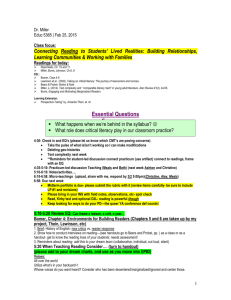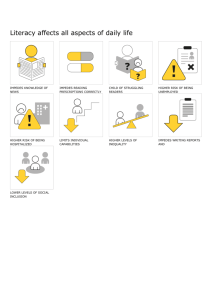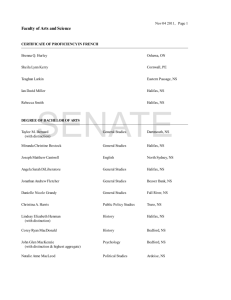1000 Books Take Flight - Dartmouth Learning Network
advertisement
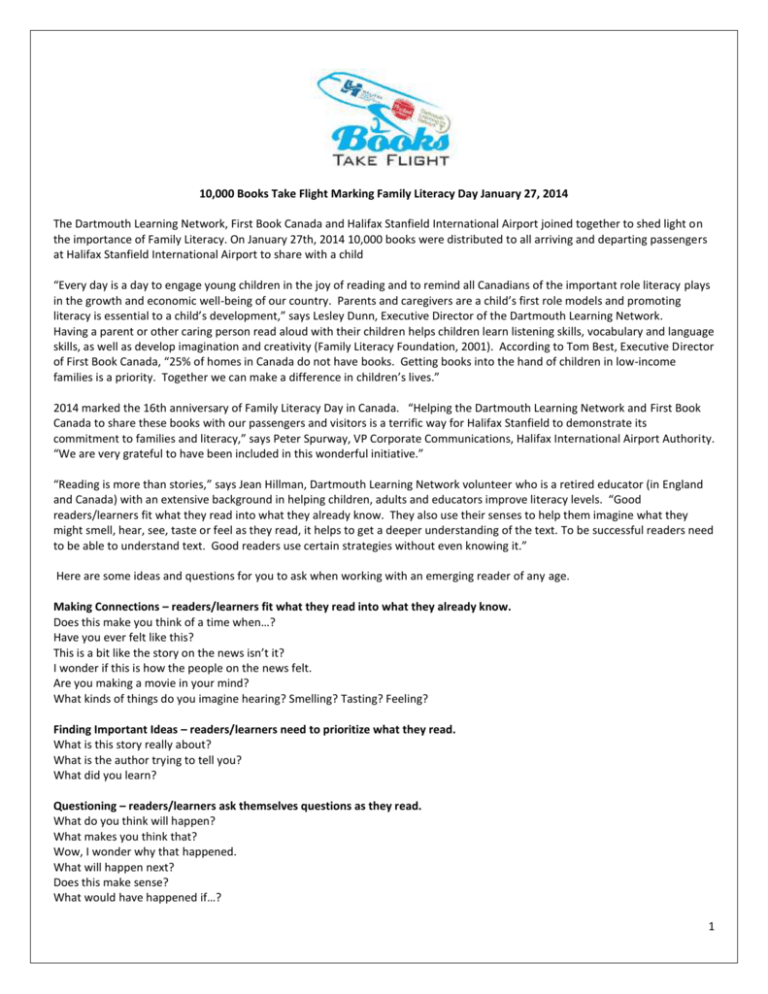
10,000 Books Take Flight Marking Family Literacy Day January 27, 2014 The Dartmouth Learning Network, First Book Canada and Halifax Stanfield International Airport joined together to shed light on the importance of Family Literacy. On January 27th, 2014 10,000 books were distributed to all arriving and departing passengers at Halifax Stanfield International Airport to share with a child “Every day is a day to engage young children in the joy of reading and to remind all Canadians of the important role literacy plays in the growth and economic well-being of our country. Parents and caregivers are a child’s first role models and promoting literacy is essential to a child’s development,” says Lesley Dunn, Executive Director of the Dartmouth Learning Network. Having a parent or other caring person read aloud with their children helps children learn listening skills, vocabulary and language skills, as well as develop imagination and creativity (Family Literacy Foundation, 2001). According to Tom Best, Executive Director of First Book Canada, “25% of homes in Canada do not have books. Getting books into the hand of children in low-income families is a priority. Together we can make a difference in children’s lives.” 2014 marked the 16th anniversary of Family Literacy Day in Canada. “Helping the Dartmouth Learning Network and First Book Canada to share these books with our passengers and visitors is a terrific way for Halifax Stanfield to demonstrate its commitment to families and literacy,” says Peter Spurway, VP Corporate Communications, Halifax International Airport Authority. “We are very grateful to have been included in this wonderful initiative.” “Reading is more than stories,” says Jean Hillman, Dartmouth Learning Network volunteer who is a retired educator (in England and Canada) with an extensive background in helping children, adults and educators improve literacy levels. “Good readers/learners fit what they read into what they already know. They also use their senses to help them imagine what they might smell, hear, see, taste or feel as they read, it helps to get a deeper understanding of the text. To be successful readers need to be able to understand text. Good readers use certain strategies without even knowing it.” Here are some ideas and questions for you to ask when working with an emerging reader of any age. Making Connections – readers/learners fit what they read into what they already know. Does this make you think of a time when…? Have you ever felt like this? This is a bit like the story on the news isn’t it? I wonder if this is how the people on the news felt. Are you making a movie in your mind? What kinds of things do you imagine hearing? Smelling? Tasting? Feeling? Finding Important Ideas – readers/learners need to prioritize what they read. What is this story really about? What is the author trying to tell you? What did you learn? Questioning – readers/learners ask themselves questions as they read. What do you think will happen? What makes you think that? Wow, I wonder why that happened. What will happen next? Does this make sense? What would have happened if…? 1 I wonder why the author…? I wonder where we could look to find out more about…? Reading Between the Lines – readers/learners learn to answer questions the author may not have provided answers to Why do you suppose this happened? What do you think this means? I wonder why the author used this information but didn’t tell us about…? What makes you think that? Bringing the pieces Together – understanding the whole story/text What did you learn? Has your thinking changed? How? For more information on developing literacy skills contact: The Dartmouth Learning Network 200-260 Wyse Road Dartmouth, NS B3A 1N3 (902) 463-9179 www.dartmouthlearning.net 2
